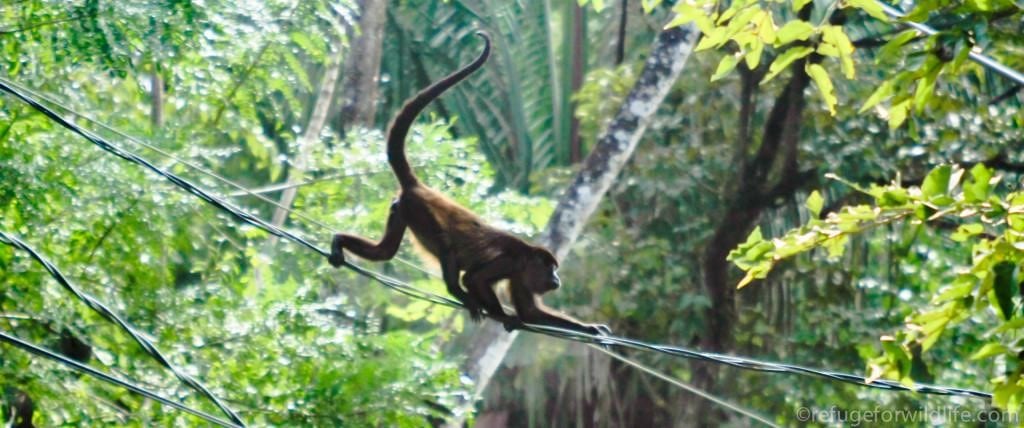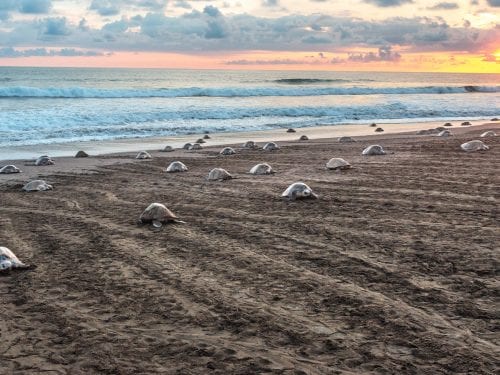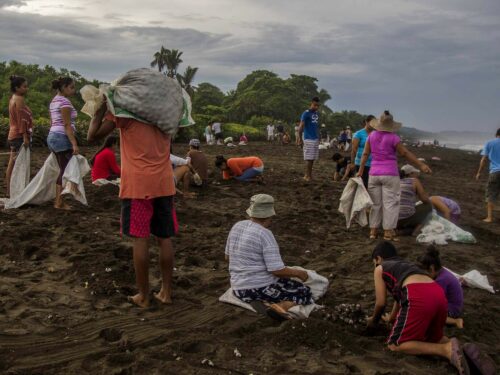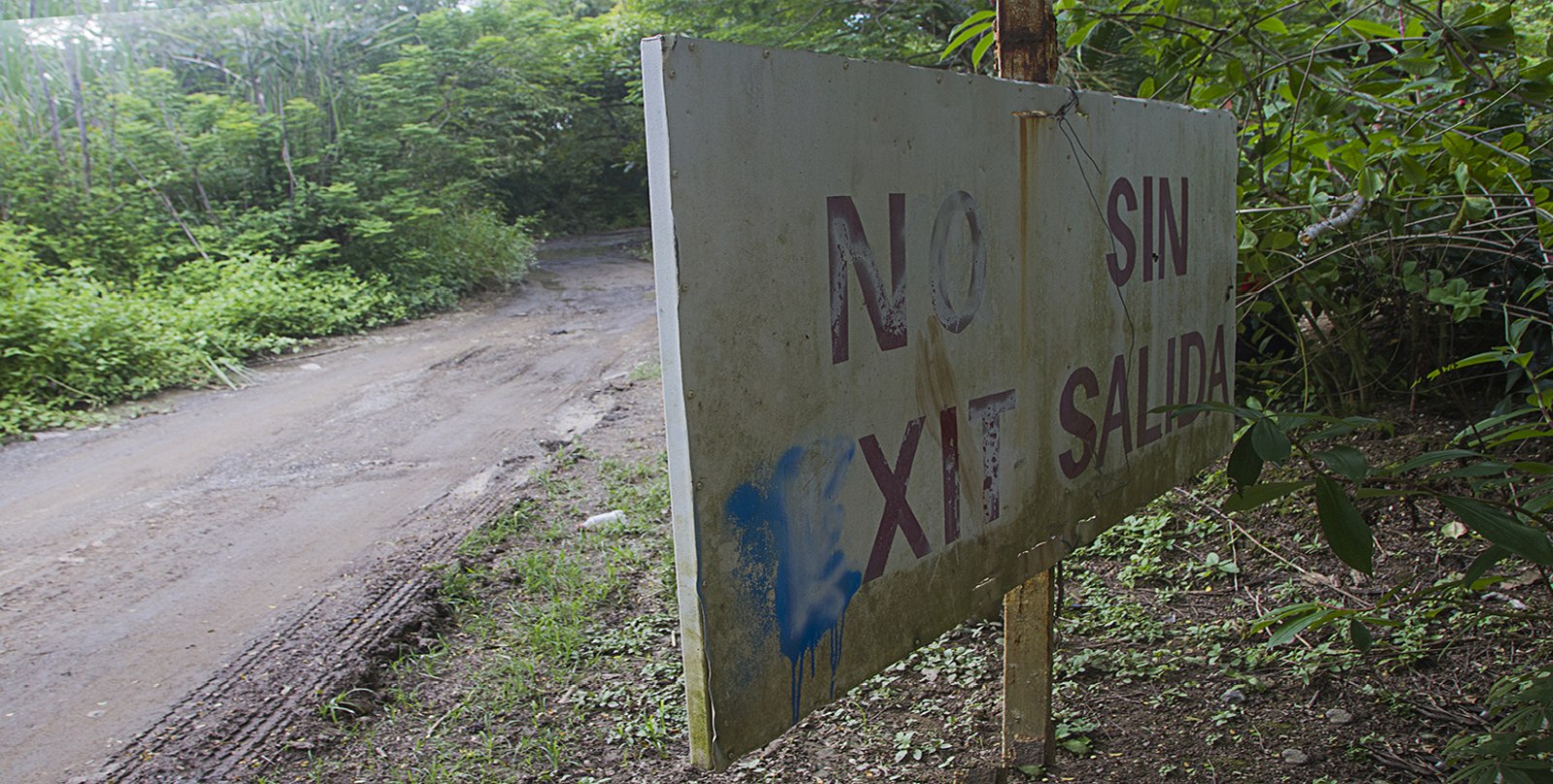One of the most beautiful things about Nosara is the sounds you hear every morning, the sounds you wake up to every day. The birds, cicadas and of course the howler monkeys.
The howler monkey is the second loudest land mammal after the elephant with a noise that can be heard from 3.8 miles away. They have sharp canines but are vegetarian with 98% of their diet made up of leaves, flowers and mango. According to the animal rescuer Brenda Bombard, their population in Nosara is declining because of electrocutions and other human development-related causes.
The Howler Monkey only covers around an 8-10 mile radius in their lifetime so when people cut down trees, it affects them drastically because they now have to rely on the cables and roads to move around.
Lucky for us, the Nosara Refuge for Wildlife is building monkey bridges (green rope) that they string along the treetops for safe crossings. They also encourage all of us to do the same around our homes because it is an easy fix to a big problem. You can purchase the rope from the hardware store.
According to Brenda, there were over 100 businesses built in 1.5 years in Nosara. This means more trees were cut down and more volts of electricity are running through the cables. There can be up to 7,200 volts in a single transformer.
There were many wildlife electrocutions last year, with 11 shocks in one single day and at least one-a-week, every week. The transformers are the main cause of death because unlike cables, where you have to touch two at once, you only need to be in contact with one point on the transformer to receive a shock.
The ICE, our electric company, has taken the time to safely cover many cables and transformers, causing the deaths to decrease over 64% between 1995 and 2007. There haven’t been any more recent surveys that we know of. Out of the thousands transformers in Nosara, they have worked to safely cover a fraction of them and plan to continue covering more with Stock the Shocks and Wildlife Crossing. There are so many amazing people in Nosara and there are people like Brenda Bombard who help restore the sounds in our jungle.







Comments